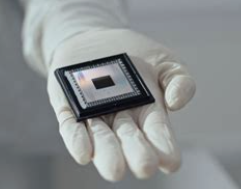Here is a wikipedia article on the subject:
here are some good youtube videos on the subject, and you can search for others yourself as well:
If wou want more information, google is always a good place to start:
If all else fails, then you can ask chatgpt, but make sure to fact check, as it can give false information:
quantum computers compute on subatomic particles, which can be in between 1 and 0, and even some other states, as shown on the home page. This means they can do much more complex calculations, and as they can be a combination of probabilities of these states, they can compute on not just many, but EVERY path at once. this has huge implications for sorting through lots complicated information, as computing on every path would allow computers to sort lots of information much faster, or as shown with the Willow chip (see figure 4), solve complicated equations much faster.

this is also a quantum computer, made by Google, and is called Willow. it has solved an equation in under 5 minutes that would take the world's fastest normal computer 10 septilion (10^25) years! (figure 4^)